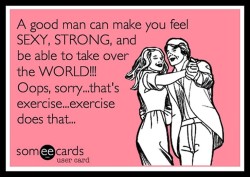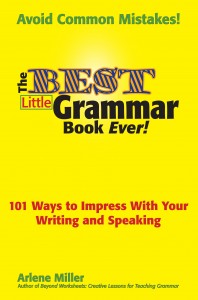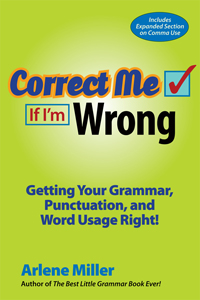What is parallel structure, anyway? Isn’t parallel a term that belongs in math class?
Parallel structure means that elements in your sentences or lists are expressed with the same syntax, or wording. For example, all the items in your lists should be complete sentences—or none of them should be complete sentences. If you have a series of phrases or clauses in a sentence, they should all be expressed using the same structure.
Parallel structure is important in
1. writing lists
2. writing series in sentences
3. using correlative conjunctions (Correlative conjunctions are the connectors that come in pairs: either/or, both/and, not only/but also, whether/if, neither/nor.)
1. Here is a list that is not parallel:
At this seminar you will learn
- how to be a better manager
- how to inspire your employees
- how to use your time effectively
- evaluating your employees fairly
- how to handle office conflicts
It is easy to see which item in the list is not parallel. The item that begins with “evaluating” should read how to evaluate your employees fairly.
2. In addition to parallelism in lists, it is important to structure your sentences so that that are parallel. Here are some examples:
Not parallel: When writing your essay, you should check for correct grammar, capitalize all your proper nouns, and it is important to use transition words.
Parallel: When writing your essay, you should check for correct grammar, capitalize all your proper nouns, and use transition words.
In the parallel sentence above, the clauses all begin with verbs.
Here is another example:
Not parallel: On our trip to Paris, I wanted to go shopping, eat in nice restaurants, and visiting my old friends.
Parallel: On our trip to Paris, I wanted to go shopping, eat in nice restaurants, and visit my old friends.
Not parallel: When I shop for Christmas gifts, I pay close attention to the price of the gift, the quality of the item, and whether my friend will like it.
Parallel: When I shop for Christmas gifts, I pay close attention to the price of the gift, the quality of the item, and the appropriateness of the item for that friend.
3. It is also important to use parallel structure when you use correlative conjunctions. Here are a few examples:
Not parallel: I like to spend my free time either reading or I will go to the movies.
Parallel: I like to spend my free time either reading or going to the movies.
Not parallel: I love both salads and grilling a steak.
Parallel: I love both putting together a salad and grilling a steak. (There is always more than one way to fix something. Of course, you could also say I love both salad and steak.)
Not parallel: I don’t know whether my brother is driving from Arizona or he might take the train.
Parallel: I don’t know whether my brother is driving from Arizona or taking the train.
Parallel writing flows much better and doesn’t have that awkward sound that “nonparallel” writing has. It is easy to overlook mistakes in parallel construction, so always proofread!
Remember that books make great holiday gifts, either in paperback or ebook format. And what better gift can you give this season than the gift of better writing?






Is this example parallel “I will go surf the waves.” It seems the base form of this would be “I will go and I will surf the waves.” and was simplified by removing “and I will”. This “will go +verb” where the +verb does not have -ing on it (not in the present participle form). This seems to be a commonly used construction (I will go buy…, I will go drink…, etc.), but I can’t seem to find the right grammatical description of it. Actually, looking at it again, it seems the best way to put it is to leave out the first verb entirely. I will surf the waves. I will buy a drink. It is a wordy construction.
Thanks for the great comment….Yes, that is a common construction: I will go to surf the waves or I will go and surf the waves are probably the other possible ways to say it. And of course the compound sentence you present. It is one of those constructions that few people know about. I do not know what it is called. I have in the past tried to find the answer to constructions like that, but it is hard to find the answer because I don’t know what to call it or to what to search for. And hardly any grammar books cover it. I will try to find out.
Can you give a whether/if example?
Probably not, because I don’t think that is correct. It is whether/or: I don’t know whether to do my laundry or if I should go grocery shopping. Correct: I don’t know whether to do my laundry or go grocery shopping.